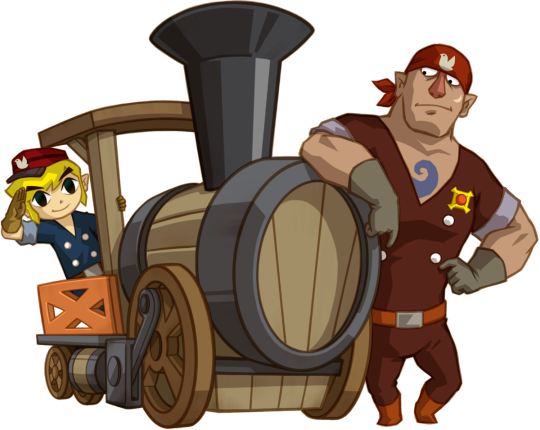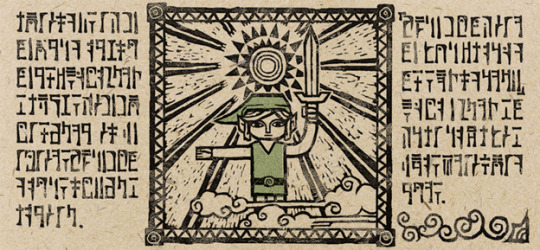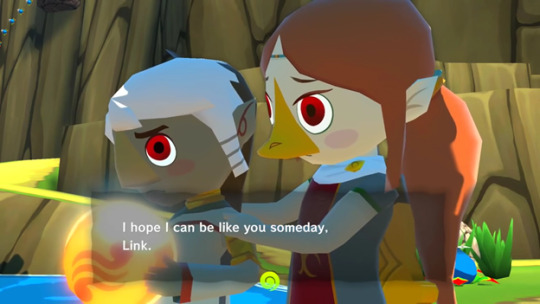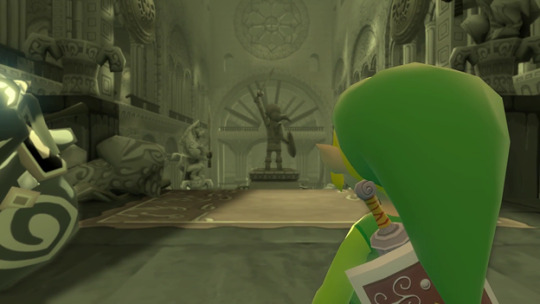#and closing chapters while creating new lore and tying it all together. and 2) this very well COULD be them closing out some of the lore
Explore tagged Tumblr posts
Note
i feel like there have been so many conflicting signals about this album 😵💫
no literally so many different vibes at different times which is why i kept theorizing that maybe it would pull elements from every album?? like it’s their 5th album which IS a milestone, the void is literally “past echoes” and “future visions”, and every song has had different vibes that seemingly fit the different albums but with a twist?? like “who laughs last?” is OBVIOUSLY very vide noir-esque, “let the devil come” is very strange trails-y, “look back” has elements of lonesome dreams (at least to me. like ben’s voice has that softness that i think is most reminiscent of the ghost on the shore), and that unreleased 22 second snippet of that one songs sounds so painfully long lost era that i could cry. not to mention “is there anybody out there?” which could really fit into any of the four previous albums. plus the whole month of lonesome dreams posting we got in 2022 along with the last note about george ranger johnson’s extraterrestrial radio show AND this year being strange trails’ 10th anniversary…. i just really feel like this album could be an amalgamation of the previous four but in a new way…. anyway my clown nose is firmly attached !
#the only thing i’ve seen against this theory is that it feels more fitting for a final album than just their 5th one but like.#1) long lost’s themes made it inherently feel like a final album and of course it wasn’t. i think this band is just very good at opening#and closing chapters while creating new lore and tying it all together. and 2) this very well COULD be them closing out some of the lore#before beginning anew!!! maybe i’m obsessed with this idea . maybe just a little#asks#lord huron
16 notes
·
View notes
Text
Legend of Korra thoughts, bit long, just finished it after 8 years
I finally finished Legend of Korra after watching a few episodes all the way back when it first came out, but then losing track of it for... 8 years, and while I get why people critique it all the time, I also don’t think it deserves all the hate it typically gets. I read somewhere that the first season was written as a standalone, where the creators didn’t expect anymore after, and it definitely shows in the isolated plot structure subsequent seasons take, but as it developed you got to see how Korra’s growth is affected by every new experience.
Season 2 was a bit jarring as they tried to regain footing and expand on the world beyond what they originally imagined, but season 3 and 4 I think did a good job getting the show’s voice back and building on lore. Season 2 honestly didn’t even feel very avatar-esque to me at first, but with hindsight I see how it tied in with the later seasons. In some ways I felt season 2 did a small reset on some aspects of Korra’s character, and the whole back and forth between Mako-Asami-Korra was just, retreading old ground. I’m glad that was over with by S3 and they began nudging in just the barest hint of korrasami endgame. Like. The barest whisper of korrasami. They tried. Nickelodeon just wasn’t ready for the full thing.
The last 2 seasons were definitely my favourite, and I found that the parts I was frustrated at, I wasn’t frustrated at the plot, but the character, which I couldn’t fault for being nonsensical, but for being realistically, true to character stubborn. Korra had her own hurdles to overcome, and while some paralleled Aang’s, it was also so wholly her own. The new Avatar had new problems, that were intrinsically connected, built on, as all things usually are, the past. Just like Kyoshi’s Dai Lis became shady secret agents, Aang’s Republic City became a breeding ground for much political underhandedness. Even all the way in the Beginning, the reason Wan became Avatar was because of his mistake in severing the ties between Vaatu and Raava. Every Avatar exists to deal with the past Avatar’s mistakes, and create new ones, as life is an endless cycle of destruction and reconstruction, mistakes and reparation, life and death on every scale.
Finally, the slow season by season reveal of the original characters, first Katara, then Zuko, and Toph, gave each chapter a bit of excitement. The little call backs to Last Airbender (what comes to mind is Professor Zei, Zhao, and Cabbage Corp??? Cabbage man really did well for himself) seemed genuinely appropriate and not just ham-fisted fanfare intertextuality look-what-we-did-there moments. It’s a bit of a shame how little Aang really appears, but it’s understandable - what with the connection to past lives lost, and the establishment of Korra as her own avatar not to be compared to the original very popular ATLA. Though I would love to know Aang’s thoughts and advice on all that Korra experiences (and Kyoshi’s, because of course), hearing him through his loved ones, old and young, was its own bittersweet experience. It showed the impact he left on people, long after he’s gone, and emphasized that though Korra may have lost her connection to her past lives, they are still there, real, connected to everyone who loves and remembers them, like the love of the monks still living in Aang channeled into his love for others. My favourite part of season 2 was actually the B-plot following Tenzin, Bumi, and Kya, as they discuss how Aang was as a father. As disappointing as it may have been, it’s also fascinating to know Aang - and Toph - weren’t the best parents, and it stems from things we can track back to the Last Airbender. Of course, no one is delighted to know Aang showed blatant favouritism to Tenzin, but it’s also, of course he did, the Air Nomads’ culture was so important to him. It sucks Toph was a bit too free handed with her kids, but that comes from not wanting to suffocate them like her parents did. Legend of Korra is about going to extremes for good intentions. Every villain embodies that warning adage of going too far, even for a good cause. And so it makes sense, in a realistic story whose guiding philosophy includes yin and yang (a bit of good in the bad, a bit of bad in the good), that the our ‘heroes’ mirror the same. In this way everyone is a little bit like the Avatar, trying to fix a past mistake, and overcompensating for the next generation to struggle with. It’s very human.
Korra’s story is not Aang’s, though his shadow lingers on like Roku’s did on Aang. Legend of Korra had genuinely touching moments, both masterfully built on from last show’s memories, like all the airbenders working together for the first time in hundreds of years, and crafted by itself, like Asami’s father’s sacrifice. This isn’t to say the show is not without problems - I, for one, would love to have seen more of Sokka, Suki, Mai and Ty Lee; and again season 2 felt wholly unfamiliar as an ATLA universe (though I understand given the means they had they were really trying), but Korra’s story is worth telling. The stories are similar - to become an Avatar that maintains peace, and finds balance between their duty to the world and to one another. They just reached that equilibrium from opposite ends. Two kids trying to save the world, one ran and returned, one charged and recoiled, but they find their place in the end somewhere close to each other.
#atla#legend of korra#last airbender#korra#aang#avatar#text#i have a lot of thoughts and feelings#lok isn't like atla at all and that can be a good thing#hey if you made it this long thanks for reading
10 notes
·
View notes
Text
My brain refuses to shut up so here we go, more ramblings about the Avatar Lian storyline lets go.
I really, really wanna like explore the idea that was posted on the old nick website and was claimed by the writers to be the original idea of the Avatar being the embodiment of the planets spirit. I have so many ideas for what it could entail and I think that's the direction I'm heading in for this rather than the Raava and Vaatu storyline. While I don't hate or dislike the original Avatar Wan storyline done in Korra, I feel like this is the best route to take this fic in and hey, if I'm gonna make an au, why not go full force into it.
I still stand by the idea that Toph created Pro Bending with Sokka. They absolutely did that. I'm torn because I want Toph to be like that bitch that's still running her Metalbending school because I feel like she would but also her fucking off into the swamp where no one can bug her also felt super in character.
I kinda think it could be interesting if there is actually beef between her and the police force of Republic City because she doesn't like them using her Metalbending and she is constantly stirring up trouble for them. Especially because she hates the chief and I may be getting into that into the fic but I'm uhh I'm gonna put a pin in that.
The only thing that really is gonna like. Stick around from the comics is Republic City and the Republic Nation and something akin to how its formed in the comics, the legend of Lady Tienhai, and the Air Acolytes. Mostly because there's a uh there's a lot from the comics that just...I dunno 😬. There might be some changes to the formation of Republic City but there's some deep dives I gotta do to plot shit out.
If Zuko finds his Mom, it definitely ain't gonna be how it was in the comics I'm sorry I can't. Though the Mother of Faces?? Beautiful design and lore.
Azula hasn't been seen by Zuko or any of the gaang in many years. She escaped and ran away a few years after the end of the war. But I'm toying with how I'd want her to appear.
Aang! Has! Fucking! Energybending! And! Sky! Bison! He was able to help unlock airbending to bring back the Airbenders and to try and rebuild and help give birth to a new era of Airbenders. Because. He's the one who has to restore balance. As the Avatar. And he absolutely could have done this. I will die on that hill.
Two characters who actually become airbenders are Ty Lee and Teo. I feel like we all forget about Teo and he was a good kid and Aang even said he had the spirit of an Airbender so why not make him an Airbender. And Ty Lee is just. Obvious. Maybe her sisters even become Airbenders or certain ones do but I don't know.
Sokka had students of his own who wanted to learn how to fight with weapons rather than bending. It wasn't a big, formal school, but he was very happy to do this.
The Kyoshi Warriors continued to help around the different nations wherever they were needed and are still basically just an all women superhero team of the Avatar World, making Kyoshi proud. And Suki still holds a really like high honored position amongst them and likes to go out with them still.
Also I refuse to accept that Suki "died young". I'm sorry, but it's funny they think Suki would fucking let death take her. She laughs at the thought.
Katara is an amazing Fire Lady and works hard to make better progress changes for them while doing her best to help her home in the Southern Water Tribe and finding a balance between both. I think she also tries to make strives, being inspired by Aang and her home, to look into old traditions of the Fire Nation before the war, perhaps helps revitalize old holidays that they didn't get to celebrate anymore. She wants to see this nation heal from the effects of the war that hurt everyone involved really.
Moving onto like the "third generation" thoughts, i.e. Lians generation:
Lian and Jesa are basically best friends and have alwayd had this instant connection with each other. So it makes sense that when Lian runs off to make her own Avatar journey, her best friend comes with her.
The White Lotus is uh Not Having That. They've already had to wait 16 years for her to be told and trained -- because Katara herself would have killed them for forcing her into a role she would not be ready for as a tODDLER because she knew what it had done to Aang -- and they believed she has to be kept with them and for them to choose bending masters for her to learn from.
So it's them actively trying to hunt her and Jesa down to bring them back -- something Kyas sons are actually running interference for.
I think Lian really wants to see the world and have new experiences because she knew how important it was to her grandparents and now it's her also trying to connect with her past lives by doing what Aang and other Avatars had done, while also figuring out for herself what kind of Avatar she wants to be.
I'm also really excited to explore the contrasting family dynamics between Lian and Jesas families. Lians family is very close knit, and supportive and stick together through a lot. Jesas family has a lot of strained relationships between each other and hasn't done much to repair those relationships and her getting to kind of discover what happened.
Movers have been around for ~2 decades by the time of this and I really want there to be like an early film adaptation of the Ember Island Play. I don't know why. I just think it'd be funny.
Adding onto that quick note too, I think this worlds version of television may be starting to be created at a later point in the story just because that could be kinda neat.
I do wanna do different maybe even mini chapters that show what some of the other grandkids are up to that will connect into the overarching storyline
I'm really excited to go into the topics of who Lians Earthbending and Firebending teachers are going to be for her Team Avatar and to see who else may join up with them.
I just really kinda needed to ramble a little bit and I know it's not as in depth on the second gen but yeah just some thoughts
12 notes
·
View notes
Text
2: the legend of the Legend of Zelda
The fictional chronology of the Legend of Zelda is honestly just a hot steaming pile of dog doodoo. Most people agree that a timeline was kind of cobbled together in 2011 to clarify why there was a seemingly identical kid named Link fighting Ganon so many times, tying together the existing releases. It’s not coincidence that this first appearance of the official timeline was linked to the release of Skyward Sword, the prequel to the entire timeline explaining the origin of the legendary conflict between Link, Zelda, and Ganon. Essentially, the overall story of Hyrule, the world of Legend of Zelda, is that Link, Zelda, and Ganon are destined to wage an eternal conflict over the ages, with each Link who seals Ganon away being christened a new Hero. For example, Link from Ocarina of Time becomes The Hero of Time, Link from Twilight Princess becomes the Hero of Twilight, and the link from Spirit Tracks becomes…the Hero of Trains. (Seriously.) However, while the exact history of the Legend of Zelda is convoluted and almost nonsensical at points*, the sense of lore is so strong and contributes to the experience of so many of these games, especially the ones that I (and everyone else) love the most.

Spirit Tracks was lowkey actually kind of fun.
So much of the magic of the Legend of Zelda comes from the role the “legend” itself plays in the world of Zelda. Like legends in the real world, the stories of the Hero Link are passed down through oral and written tradition by the residents of Hyrule. And like real stories, they morph and redefine themselves over time. Most of the “main games” take place so far in the future from the previous Link that his story is an actual legend – a fable that people tell their children, like the epic of Gilgamesh or King Alexander. Thus, the player often occupies a state built on dramatic irony – the non-player characters will tell you the story of Link, the Triforce, and the Master Sword, all while you (a different Link) are creating a new story with the same elements that people far in the future will tell. This creates so many fun, beautiful, and poignant moments that gives the story a sense of grandness. You are constantly reminded that you are one in a line of Heroes, but also, players who follow the series closely will have actually been all the Heroes at one point in time. It’s a cool feeling, to say the least.

The Hero of Time, as depicted in the opening scroll of Wind Waker.
In the Wind Waker, the Hyrule you enter as a player is one where Ganondorf was defeated, but when he returned, the Hero of Time (Link from the previous game Ocarina of Time) who defeated him was nowhere to be found (there is a Very Important Plot Reason for the Hero of Time to not reappear, but the point is that the populace of Hyrule does not know this). Hyrule is flooded in order to protect the citizens of Hyrule from Ganon’s wrath, splitting the kingdom into separated islands, but his threat is always looming and growing, unbeknownst to the peaceful residents. The Hero of Time’s legend, is therefore, a bit tainted. He succeeded once, but since he seemingly disappeared, people have grown to slowly forget him or not believe in him. This is evident throughout the game. On the island where Link lives, all boys receive the traditional hero’s garb when they become the same age as the Hero of Time and are forced to wear it for a day, hoping to inspire them with courage. However, the meaning of this tradition is long diluted. All Link wants to do is play with his dear sister Aryll. He’s not going to be inspired with courage and set sail for Ganon’s fortress and fight him himself – he’s not the Hero of Time – so why bother with this nonsense?

The face of the future Hero of the Winds, everyone.
Only after some wild coincidences involving Aryll being mistakenly captured in place of a pirate named Tetra does Link begrudgingly set out on his adventure. Even still, he doesn’t set out to kill Ganondorf – he sets out to save his sister. As Link gets essentially roped into defeating Ganondork, the player is constantly reminded through interactions with various residents of Hyrule that the Hero’s story is just a tall tale, and people have stopped believing in a Hero who will come to save them. People are just trying to live their lives as best they can, unaware of the growing threat that Ganondorf presents. The foolish ones who still believe in the Hero are also children like the Rito Medli, and are ushered in as the next generation of sages.

These kids are the future! Fitting with the overall themes of the game of letting the past die to ensure the future, Wind Waker ends with Link and Zelda searching for a new land to call Hyrule after completely flooding this Hyrule (again). It’s kind of like the end of Thor: Ragnarok, except Thanos doesn’t come later (spoiler) (lmao)
When Link finds the flooded Hyrule Castle, where the Master Sword has been hidden, and is confronted with a statue of the Hero of Time, the impact is incredible. You realize that the Hero of Time was real, a young boy clad in green just like you, and you really are the successor, ready to confront Ganon himself.

The moment™, shortly before you get the Master Sword and truly embrace the role of the Hero.
This is the magic that the Legend of Zelda can bring. As Link travels across the flooded remains of Hyrule, the player gets the sense of a people who lost hope. They don’t see Link as the next incarnation of the Hero, but as what he really is: a kid who got thrown into an adventure while he was cosplaying. The fact that Link of Wind Waker can be both is what makes it such a fun game, and gives the player so much satisfaction to create the next chapter of the legend.
1 note
·
View note